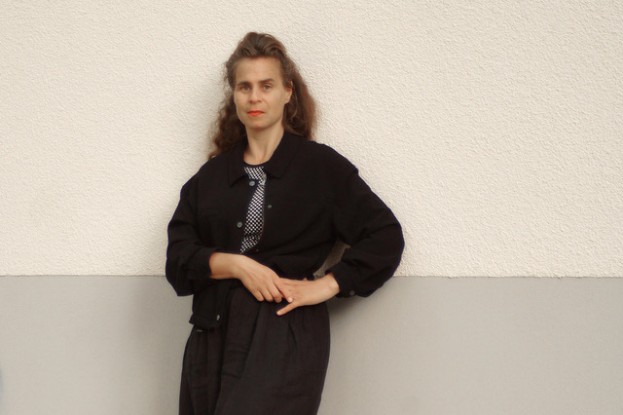Initiation phase
Inform
Read the description of the research module in the module handbook (opens in new tab) carefully and download the application form for the research module (opens in new tab). Both can as well be found on the page of the study office of department 15.The study office is also the contact for all questions regarding examination law.
Finding a topic
In the research module you may and should follow your personal interests. You are therefore completely free in your choice of topic. Find out – also through discussion with other students – what exactly interests you in a topic and thus find your focus for a suitable question.
TIPS:
- What fascinated you so much in your previous studies, on your travels, or similar, that you want to investigate it again in more detail?
- You may come across a topic in the context of a seminar you attended
- Follow current discussions in the architectural trade press
- Browse in the library
- Don't choose topics that are too large, such as: “Church Construction Through the Centuries” or “The Temple in Ancient Architecture”
- Try to tie the topic to a specific object
Specify the topic (possibly already with the help of your supervisor)
Formulate a precise scientific question and thesis(es). What do you want to find out? How do you want to investigate it? How can you narrow down the topic so that the question can be addressed within the framework of the research module?
TIPS:
- Write a “blurb” of no more than 200 words about your topic. What is special, exciting, new about the topic/question/thesis?
- Avoid questions that can be answered with “yes” or “no”.
Find a supervisor
Find out about the research focus of the professors and research assistants in your field of study on their websites. Then contact the staff member who you think can best supervise your chosen topic. The best way to do this is by e-mail. It is useful, but not absolutely necessary, if you already know the lecturer from a course.
Please do not write a general mail to one or more departments. Collective requests will not be answered!!!
TIPS:
- Topics with a focus before 1000 AD as well as building research are usually supervised in Classical Archaeology
- Architectural history topics with a temporal focus between the Middle Ages to ca. 1800/1850 as well as art history topics (without temporal constraints) are supervised by the departments of Architectural and Art History and Medieval Visual and Cultural Studies
- The Department of Architectural Theory and Science usually supervises topics from 1800 to the present day
Realization phase
Initial meeting with the supervisor*. Clarify the individual requirements. These will differ slightly. In general, an exposé (or a brief outline of the planned work) is required. Make a time schedule.
TIPS:
- Prepare for the interview and come with questions/problems that are as specific as possible.
- Take the initiative in communication (rather than waiting to be reminded of your tasks). You are responsible for your work
- If you ever don't get a response, wait a few days and resend your request or go to the respective office hours in person
Application form
Once the topic has been clarified: fill out the application form and submit it to the supervisor for a consultation on the content. Then submit the form to the Office of Student Affairs. If the dean of studies has approved the topic, you will receive a message from the study office. Please submit the form with the submission so that the supervisor can submit it to the study office with the grade and signature.
The turnaround time will be determined by mutual agreement between the instructor and learner when the proposal is submitted. The deadline for submission will be recorded on the form.
Research
Conduct intensive research. Use the library primarily for this purpose. Make sure that you also find articles published in journals in German and English on the topic. Note the possibility of interlibrary loan. Depending on the topic and the question, further research, e.g. in archives, on site or through interviews, may also be helpful.
TIPS:
- You will not always find literature on exactly your question. Approach your research through sub-areas of your topic.
- Look at research gaps positively: it is your opportunity to fill them in
- Internet research can be a good start, but is in no case sufficient for sound scientific work
- There must be sufficient, but also not too much, material to investigate. If you cannot support your interesting question with sufficient material, then it is useless. If there is too much material, you have to narrow down your question further.
Formalia
Formally, the research module is similar to a term paper. Please consult the corresponding guidelines of Fachgruppe A and talk to your supervisor.
Length: The length depends on the assignment and is usually between 20 and 30 pages of text (approximately 35,000 to 55,000 characters including spaces) and, if necessary, additional elaborations. Please talk to your supervisor about format and length.
Submission
The paper must meet the standards of a scientific paper (opens in new tab).
You can discuss the details with your supervisor.
Do not forget to include the signed declaration of self-sufficiency. (opens in new tab)


